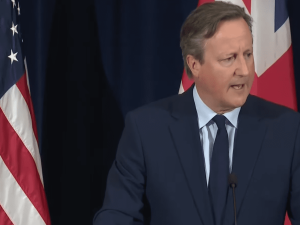New analysis by the Trades Union Congress (TUC) has revealed that public sector pay is lower in real terms than it was 20 years ago – with one in four public sector workers saying they have struggled to pay household bills over the last year. The news comes just as chancellor Jeremy Hunt is set to deliver his Spring Budget amid a continued cost of living crisis.
Spring Budget: against a backdrop of dire public sector morale
Nearly two-fifths of public sector workers (38%) have already taken steps to leave their profession to get a job in another field, or are actively considering it, according to new TUC polling.
The poll of more than 1,000 public sector workers – conducted by Opinium – comes as the trade union body warns that public services are facing a “mass exodus” of key workers unless Jeremy Hunt invests in public services and the workforce at the Spring Budget.
According to TUC analysis, around 2.2 million public sector workers are seriously thinking about quitting their jobs for good.
The TUC says the recruitment crisis plaguing public services has been compounded by years of “brutal” real-terms pay cuts.
Brutal real-terms pay cuts
New TUC analysis shows that 2022 and 2023 was the worst two-year period for public servant pay since records began – with average salaries falling by 7% in real terms.
The union body estimates that median pay across the public realm is now £42 per week (£2.2k a year) lower in real terms than in 2010 and is still worth less now than in 2004.
According to today’s poll:
- Over a quarter (27%) of public sector workers have struggled to pay a household bill over the last year – a number that rises to one in three (33%) for female staff.
- A fifth (22%) have taken on additional debt to cope with the cost of living.
- One in eight (13%) have gone without food.
- One in 10 (10%) have used a foodbank.
Spring Budget: acting in the national interest?
The TUC says Jeremy Hunt “must act in the national interest” and invest in public services and the public sector workforce at the Spring Budget.
The union body said strong public services are essential for economic growth.
The TUC highlighted that without action to address the pressure on frontline services, economic inactivity would continue to grow.
Nearly three million people in the UK are currently economically inactive due to long-term sickness.
Public services at breaking point
TUC general secretary Paul Nowak said:
Years of underfunding and mismanagement have left our public services and their workforce at breaking point.
Every month experienced and dedicated public servants are quitting in droves because they are burned out, feel downtrodden, undervalued and are struggling to pay their bills.
If the Chancellor does not invest in our public services the staffing crisis will only get worse and communities across Britain will continue to suffer.
That means dealing with issues like pay and intolerable workloads.
The idea that the public sector can do more with less has been tested to destruction over the last 14 years.
The fastest way to get public sector productivity rising is to pay people fairly and invest in the equipment and technology they need to do their jobs.
Strong public services are vital for growth and for the well-being of the country. Jeremy Hunt must act in the national interest and provide the funding local services desperately need.
Spring Budget must NOT starve public services
UNISON general secretary and chair of the TUC’s Public Services Liaison Group Christina McAnea said:
The government has consistently starved public services of resources. Most are now in a perilous state, with too few staff to deliver a quality service.
Across health, education, local government, police forces and social care, workers feel guilty they can’t do more to help those needing help and support because services are so stretched.
Everything feels broken and no longer functioning as it should. No wonder so many key workers are leaving their jobs.
The public wants good, properly resourced, well-staffed essential services. Yet more cuts will simply push services to point of collapse.
Featured image via Sky News – YouTube




